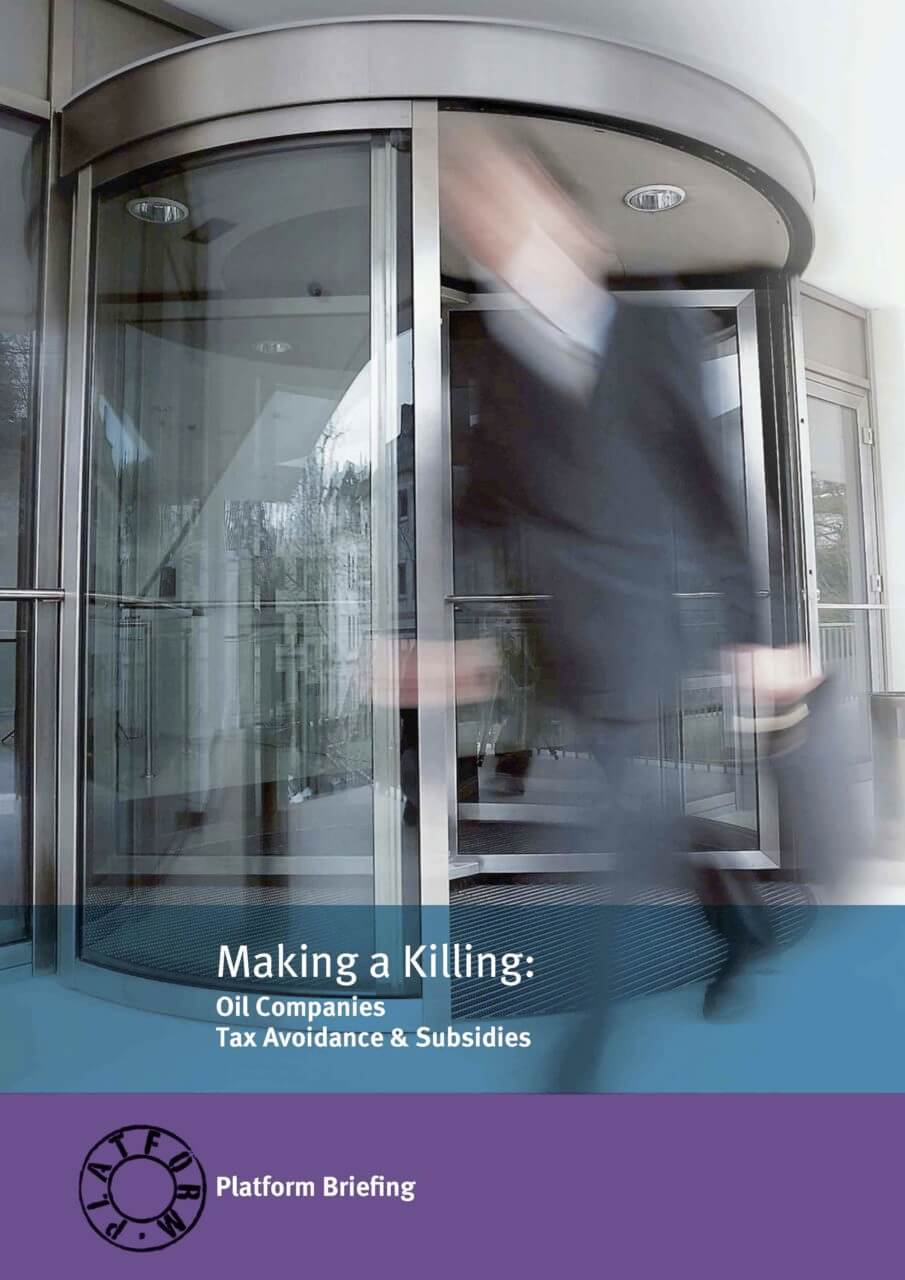Oil company mega-profits are being made at the expense of the public purse, as youth centres shut, hospitals struggle and the queues at food banks grow. Companies like BP & Shell receive major government support including direct subsidies and military and diplomatic services, but seem to pay very small amounts of UK tax in comparison to their global profits. At a time of both public service cutbacks and record-breaking profit-making by oil companies, this briefing attempts to bring to light these transfers of wealth from the public to the private sector, including:
1. Corporation tax avoidance. Shell, BP and Tullow all use similar tactics to avoid paying tax. While we have see the global profits of UK oil companies increase greatly in the last decade, the amount of corporation tax they pay in the UK seems to rise only marginally, or in some cases, even falls. Oil companies can avoid paying tax by minimising the amount of profit that passes through the company’s UK books, routing it through an international network of subsidiaries instead.
2. Tax breaks for North Sea oil and gas and (potentially) shale gas. George Osborne handed hundreds of millions of pounds in tax breaks to oil companies responsible for 80% of recent North Sea oil and gas projects . Similar tax handouts are expected for fracking (hydraulic fracturing) enterprises.
3. External political and military support. At least four UK government departments provide unconditional business support to oil companies, including military convoys, lobbying and intelligence-gathering, with the frequent involvement of ministers and high-level civil servants. While hard to quantify, the cost of just one diplomat in the UK consulate in Basra was £2mn per year.
4. Equity finance. The UK provides financial support to oil extraction and transportation abroad on preferential terms via the Export Credit Guarantee Department as well as International Financial Institutions (EBRD, European Investment Bank, World Bank Group)
International oil companies channel their cashflows through networks of subsidiaries, many in high secrecy offshore jurisdictions. BP and Shell are particularly committed to tax havens, with more tax-dodging subsidiaries than their competitors: 605 and 523 high-secrecy subsidiaries respectively. IOCs can also play off governments against each other, exploit international legal mechanisms (Tullow in Uganda), and local loopholes (BP in Turkey) to avoid paying tax.
Rather than providing fossil fuel companies with the financial incentives and political support to pursue ever more dangerous drilling, the UK government should prioritise the public well-being over the profits of these vast oil corporations – by properly taxing them. The first step towards phasing out UK fossil fuel subsidies would be transparency: open government reporting that tracks and quantifies the subsidies.
Download briefing (pdf) or browse online below.
